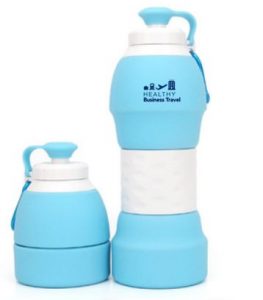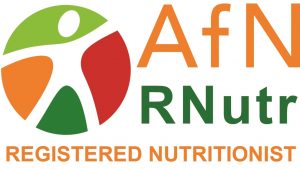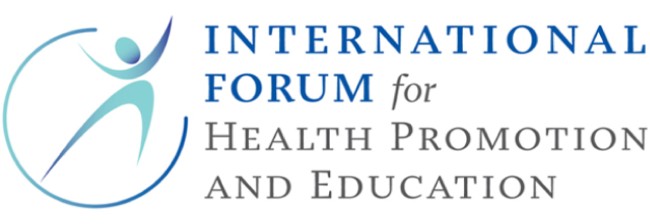We are far away from any return to pre-Covid-19 business travel. At the moment governments advise against non-essential travel. In the long term, we will probably be altering our work practices to get maximum efficiency from all future travel. At the time of writing, there is a limited range of international flights on offer, and a closer to ‘normal’ level of train services, including Eurostar. At Executive Travel Vitality, our regular concern is nourishment, which is especially challenging when we are being super careful to avoid infection.
What nourishment can we expect when we travel?
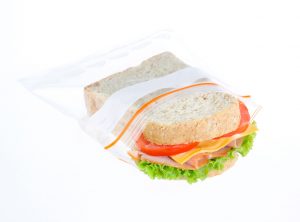 Travel hubs tend to have the same restrictions as most town centres; supermarkets and pharmacies have remained open, non-essential outlets are slowly beginning to reopen but only if able to follow Covid-19 safety requirements. Takeaway options of pre-wrapped foods are slowly increasing in availability through some outlets, which at the moment are mainly chemists and newsagents in stations and airports. Restaurants aren’t expected to open until July and then with restrictions in place so queuing is likely. Airlines say that people are welcome to bring their own food onboard but to be aware that most shops and cafes in the terminals are closed, so it will be necessary to bring food from home.
Travel hubs tend to have the same restrictions as most town centres; supermarkets and pharmacies have remained open, non-essential outlets are slowly beginning to reopen but only if able to follow Covid-19 safety requirements. Takeaway options of pre-wrapped foods are slowly increasing in availability through some outlets, which at the moment are mainly chemists and newsagents in stations and airports. Restaurants aren’t expected to open until July and then with restrictions in place so queuing is likely. Airlines say that people are welcome to bring their own food onboard but to be aware that most shops and cafes in the terminals are closed, so it will be necessary to bring food from home.
On short-haul flights, airlines that previously sold food and beverages on board will no longer do so, but most are offering complimentary water, and some say that hot drinks will be available on request. I would guess that drinks servings will be in small volumes, to avoid congestion at the toilets!
Long haul flights will have a reduced food and beverage service. British Airways website says that they will offer a limited range of hot meals, snacks and soft drinks but won’t be able to accommodate allergy or special dietary requirements. Other airlines say that passengers will be offered a food package when they board.
What should we bring?
Disinfecting wet wipes will be offered, but I’ll also bring my own, plus hand sanitiser to ensure hands are cleaned before eating. The advice is to wash our hands frequently but also to remain seated as much as possible. We must now also wear a face mask when travelling. Some airports provide face masks and gloves, along with sanitiser throughout the airport, but always plan to take your own.
A bottle of water – or an empty bottle for water, is essential.
I plan to carry food that can be eaten directly out of a bag or wrapper, avoiding the need for me to physically touch it. Food that can be eaten without the use of utensils and with packaging that can be crunched up to a small bundle, is ideal. I love fresh fruit when travelling and a firm, juicy apple works well, the core can be wrapped up and put in the rubbish. The little bags of dried fruit and nuts I used to bring, I’ll now swap for a muesli bar that can be eaten out of the wrapper. These can be high in sugar and fat, a careful read of the packaging is necessary to pick one that is nutritious.
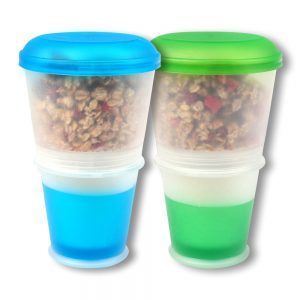 For longer journeys, sandwiches and wraps brought from home is a good choice during Covid-19. A selection of wraps, sushi and ‘finger food’ is available from take-away outlets, but if I have personally wrapped my food in individual serves, in cling film or baking paper, I won’t be tempted to lick my fingers. The longer the journey, the bigger the selection of food we need to bring, a salad wrap with hummus is tasty, cheese and meats with pickles or leaves work well; smelly items like eggs and some fish is antisocial.
For longer journeys, sandwiches and wraps brought from home is a good choice during Covid-19. A selection of wraps, sushi and ‘finger food’ is available from take-away outlets, but if I have personally wrapped my food in individual serves, in cling film or baking paper, I won’t be tempted to lick my fingers. The longer the journey, the bigger the selection of food we need to bring, a salad wrap with hummus is tasty, cheese and meats with pickles or leaves work well; smelly items like eggs and some fish is antisocial.
If I feel that I’ll need a treat, I’m going to let my nutritionist instincts look the other way, and bring a small chocolate bar.
Some governments currently advise airlines to minimise the volume of the individual cabin baggage allowance so to help speed up the boarding process, which will inevitably be lengthened by the need for bio-security during Covid-19 outbreaks. However, airlines are campaigning for one or two cabin bags to remain as they tend to be only touched by the owner and reduce the handling of checked-in luggage. As we are living in a dynamic travel environment, it is always better to check with the airline or airport the day before departure and with current government guidelines. We might need to travel wearing our extra sweater and carrying little more than our tech gear, medication, drinks and snacks.
© 2020 Executive Travel Vitality

























